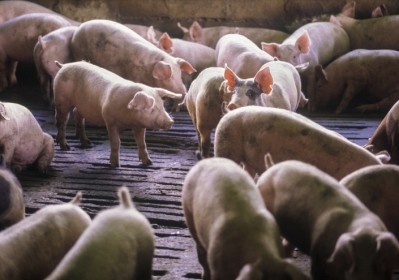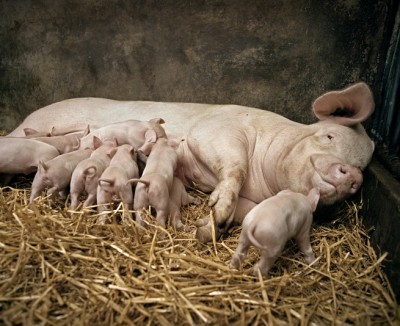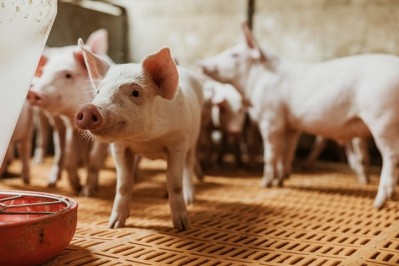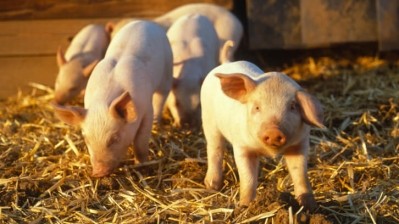Fermented bamboo fiber can boost immunity and gut health in sows and piglets
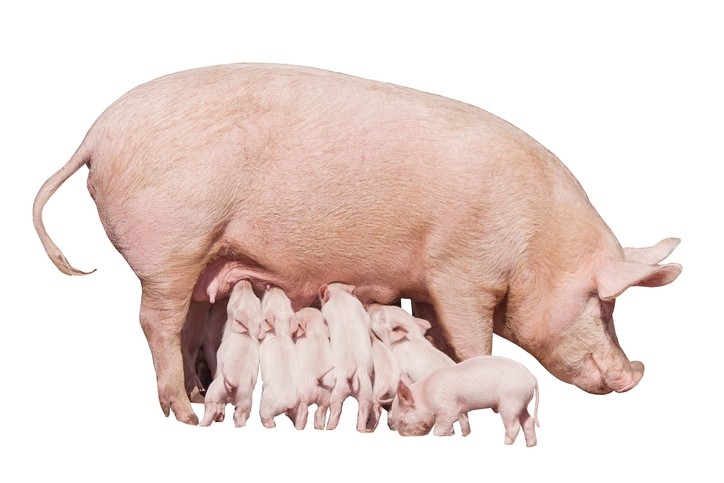
FBF provides a potentially effective method for dietary modification to control the gut microbiota and its metabolites to improve sow and piglet health. Sow diet supplementation with this fiber source significantly increased the relative numbers of anti-inflammatory and dietary fiber degradation-associated bacteria and decreased the relative abundance of proinflammatory bacteria, reported the authors.
Sows exhibit metabolic syndrome and significant changes in intestinal microbiota during late gestation and lactation. They mobilize body reserves during gestation and lactation due to nutrients being prioritized for lactation purposes while feeding piglets, which leads to metabolism and immunity undergoing drastic changes.
The main manifestations are increased inflammation and intestinal permeability and disturbed intestinal flora, which reduces the average daily feed intake (ADFI) and milk quality, thus affecting the growth of piglets.
Dietary fiber is widely applied in sow nutrition due to its potential value in improving performance and intestinal health. However, fermented bamboo fiber (FBF) has not been fully evaluated in this respect, said the researchers.
China is the largest bamboo-producing country and has about 300 species in 44 genera. To improve the comprehensive utilization of bamboo resources, the health-promoting effects of bamboo have been extensively studied. All parts of the bamboo plant, such as rhizome, stems, shavings, leaves, roots, shoots, and seeds, exhibit clinical applications, according to the team behind the study.
“Four arabinoxylan oligosaccharides have been identified in bamboo culms, and arabinoxylan oligosaccharides in certain bamboo leaves help maintain intestinal flora homeostasis. Bamboo stem extracts like p-coumaric acid, myricetin, and flavonoids have helpful effects on antibacterial, anti-obesity, anti-inflammation, cardiovascular, metabolic, and neurological disorders.”
Bamboo shoot dietary fiber has functions such as antioxidant activity, anti-inflammatory effect, antidiabetic activity, and obesity prevention,” they added.
The goal
Although the health-promoting effects of bamboo shoots and leaves have been extensively studied, the beneficial effects of dietary fiber from Moso bamboo culms have not been well studied. In this study, FBF was added to the diets of sows during late gestation and lactation to study the effects of various levels of FBF on gut microbiota, inflammation, intestinal permeability, and immunity in sows and piglets.
“We hypothesized that supplementation with FBF in a sow diet could improve the performance of both the sow and its piglets by alleviating intestinal and systemic inflammation, improving immune performance and regulating the gut microbiota.”
The study
The researchers said that 60 sows were randomly allocated to groups, including CON (8% wheat bran), FBF-1 (1% fermented bamboo fiber), FBF-2 (2.5% fermented bamboo fiber), and FBF-3 (4% fermented bamboo fiber) from day 80 of gestation to the end of lactation.
Compared with the animals on the control diet, the FBF-3 diet decreased lactation backfat loss, increased average daily feed intake (ADFI) during lactation, and the weight gain of piglets, while supplementation of FBF increased fecal water content and reduced the rate of constipation in sows, reported the researchers.
Further, there were improvements in the yield and quality of the milk from the sows in FBF groups, they said.
“The FBF-3 diet significantly reduced markers of intestinal permeability and systemic inflammation in sow serum during lactation, while it increased the anti-inflammatory marker, IL-10. Similarly, the piglets in the FBF-2 and FBF-3 groups had lower levels of IL-6 and higher levels of IgG, IgM, and insulin-like growth factor in serum.”
In addition, the authors saw that sows fed the 4% FBF diet had higher levels of acetate, propionate, butyrate, and total short-chain fatty acids (SCFAs) in feces than the control group, and total SCFAs were promoted in piglets from the FBF-3 group.
“Spearman correlation analysis showed that immunity, inflammation, and intestinal microbiota are closely related to sow performance, which can affect piglet growth. The potential mechanism could be that FBF promoted the enrichment of beneficial genera such as Lachnospira, Lachnospiracea_XPB1014_Group, and Roseburia and the production of SCFAs in the sow’s intestine and reduced the relative abundance of harmful bacteria such as Fusobacterium, Sutterellaceae, and Sutterella.”
Meanwhile, the intake of FBF by sows affected the gut microbial composition of their offspring, significantly increasing the relative abundance of beneficial bacteria Alistipes and Lachnoclostridium and decreasing the relative abundance of pathogenic bacteria Trueperella among colonic microorganisms, found the team.
They said that supplementation with 4% FBF had the most beneficial effect. “Follow-up studies should further identify the most effective factors in the FBF complex and the mechanisms by which they regulate pig performance and health.”
Source: ASM Journals, Microbiology Spectrum, Vol 11, No 3
Title: Fermented Bamboo Fiber Improves Productive Performance by Regulating Gut Microbiota and Inhibiting Chronic Inflammation of Sows and Piglets during Late Gestation and Lactation
Authors: C Sun, R Song, J Zhou, Y Jia, J Lu
